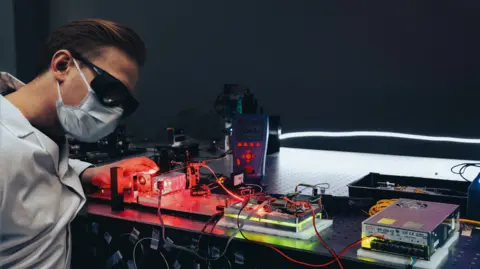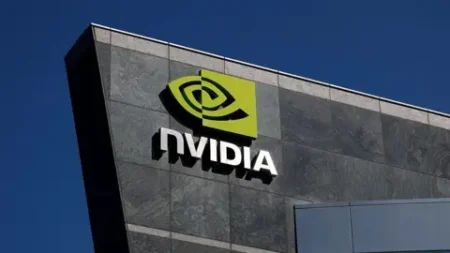**Why Little Lithuania Has Big Plans for Space Tech**
**Introduction to Lithuania’s Ambitious Space Aspirations**
Lithuania, often perceived as a small player on the global stage, is making significant strides in space technology. With a burgeoning interest in developing advanced space capabilities, this Baltic nation is rapidly positioning itself as a competitive force in an industry characterized by innovation and strategic significance. The focal point of this ambition is Astrolight, a dynamic start-up based at Vilnius Tech University, which recently secured €2.8 million ($3.3 million) in funding to create what they term an “optical data highway.” This initiative aims to revolutionize satellite communication through cutting-edge laser technology, standing to transform how data is transmitted between satellites and Earth.
**The Revolutionary Laser Technology**
Astrolight’s laser communication system is poised to enable a significant leap in data transfer speeds and security. With the projected launch of 70,000 satellites in the coming five years, the market for this technology appears incredibly promising. The company’s goal is to transition from conventional radio frequency communications to a more efficient method characterized by high bandwidth and resistance to interference. This strategic pivot not only aligns Astrolight with contemporary technological trends but also caters to an increasing need for reliable communication channels in various sectors, including defense.
**Defensive Applications and NATO Collaboration**
On the defense front, Astrolight’s technology aligns well with Lithuania’s pressing security concerns, particularly in light of regional aggressions. The company is actively involved in NATO’s Diana project, which seeks to combine civilian tech with military applications. The Lithuanian Navy has recognized the potential of Astrolight’s laser systems, opting to implement them for secure communication during radio silence situations—an essential capability in today’s strategic landscape. CEO Laurynas Maciulis highlights the benefits of using laser systems due to their low detectability, making them ideal for covert military operations.
**Growing Defense Spending and EU Support**
While Lithuania’s defense budget may appear modest compared to larger nations—approximately £2.5 billion against the UK’s £54 billion—the relative spending on defense indicates a commitment to security that exceeds that of many larger countries. With defense expenditure expected to rise from 3% to 5.5% of GDP, the Lithuanian government is increasingly recognizing the integral role of space technology in enhancing national security. Notably, 30% of Lithuania’s space initiatives have received European Union funding, surpassing the EU average of 17%.
**Shared Vision of Technological Integration**
Invest Lithuania’s head of manufacturing, Šarūnas Genys, articulates the significance of integrating space technology into defense strategies, noting the dual-use potential of components developed for space applications in military contexts. For example, Delta Biosciences in Lithuania is preparing to send a mission to the International Space Station to test medical compounds, which could eventually benefit special operations units. Additionally, Kongsberg NanoAvionics, based in Vilnius, is set to manufacture satellites that will support secure communications and intelligence operations along NATO’s eastern border.
**The Rise of Autonomous Satellite Navigation**
Complementing Astrolight’s advancements are innovations from Blackswan Space, another promising Lithuanian start-up. Their autonomous satellite navigation technology allows satellites to operate with minimal human guidance, which is crucial given the predicted increase in satellite launches. It also has military applications, such as employing drones to manage satellite positioning and potentially to neutralize enemy satellites. However, concerns remain regarding the adequacy of government support for innovation, with calls for investment to nurture a self-sufficient satellite infrastructure as opposed to relying on foreign military solutions.
**Government Initiatives and Continued Innovation**
Eglė Elena Šataitė, leader of Space Hub LT, emphasizes the necessity for Lithuania to invest in its security infrastructure through space technologies. Minister for Economy and Innovation Lukas Savickas is also responding to industry concerns by contemplating more robust funding for the space sector. Despite challenges, there is a palpable desire for Lithuania to carve out its niche in the global technological landscape, driven by its innovative spirit.
**Conclusion: The Heart of Lithuania’s Space Ambitions**
Amidst geopolitical complexities, Lithuania’s burgeoning space sector not only highlights its potential as a contributor to global technology but also underscores its strategic importance in regional defense. The combination of initiatives from companies like Astrolight and Blackswan Space reflects a broader commitment to harnessing space technologies for both civilian and military applications. As Lithuania continues to navigate its path in the high-stakes arena of space tech, it is clear that this little nation has ambitions that extend far beyond its geographic confines.











